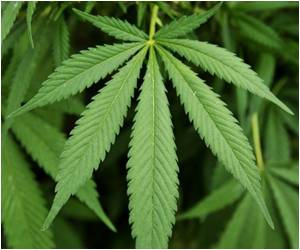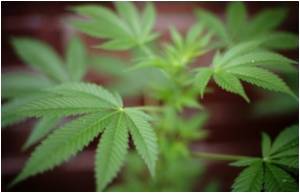
Previous studies focused on injecting high doses of THC within a very short time frame - approximately 30 minutes - before or after injury.
The current research by Prof. Yosef Sarne of Tel Aviv University's Adelson Center for the Biology of Addictive Diseases at the Sackler Faculty of Medicine demonstrates that even extremely low doses of THC - around 1,000 to 10,000 times less than that in a conventional marijuana cigarette - administered over a wide window of 1 to 7 days before or 1 to 3 days after injury can jumpstart biochemical processes which protect brain cells and preserve cognitive function over time.
This treatment, especially in light of the long time frame for administration and the low dosage, could be applicable to many cases of brain injury and be safer over time, Prof. Sarne said.
While performing experiments on the biology of cannabis, Prof. Sarne and his fellow researchers discovered that low doses of the drug had a big impact on cell signalling, preventing cell death and promoting growth factors. This finding led to a series of experiments designed to test the neuroprotective ability of THC in response to various brain injuries.
In the lab, the researchers injected mice with a single low dose of THC either before or after exposing them to brain trauma. A control group of mice sustained brain injury but did not receive the THC treatment. When the mice were examined 3 to 7 weeks after initial injury, recipients of the THC treatment performed better in behavioral tests measuring learning and memory. Additionally, biochemical studies showed heightened amounts of neuroprotective chemicals in the treatment group compared to the control group.
Advertisement
One explanation for this effect is pre- and post-conditioning, whereby the drug causes minute damage to the brain to build resistance and trigger protective measures in the face of much more severe injury, explained Prof. Sarne.
Advertisement
According to Prof. Sarne, there are several practical benefits to this treatment plan. Due to the long therapeutic time window, this treatment can be used not only to treat injury after the fact, but also to prevent injury that might occur in the future.
For example, cardiopulmonary heart-lung machines used in open heart surgery carry the risk of interrupting the blood supply to the brain, and the drug can be delivered beforehand as a preventive measure. In addition, the low dosage makes it safe for regular use in patients at constant risk of brain injury, such as epileptics or people at a high risk of heart attack.
Prof. Sarne is now working in collaboration with Prof. Edith Hochhauser of the Rabin Medical Center to test the ability of low doses of THC to prevent damage to the heart. Preliminary results indicate that they will find the same protective phenomenon in relation to cardiac ischemia, in which the heart muscle receives insufficient blood flow.
His research findings were published in the journals Behavioural Brain Research and Experimental Brain Research.
Source-ANI















